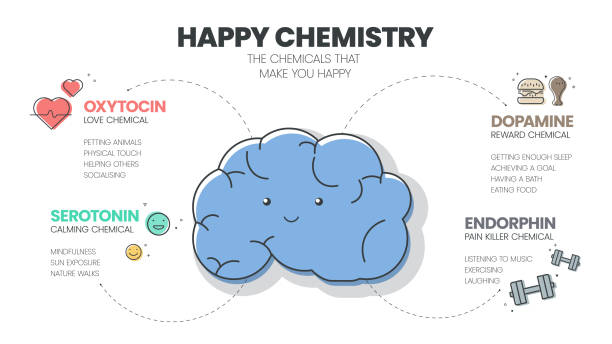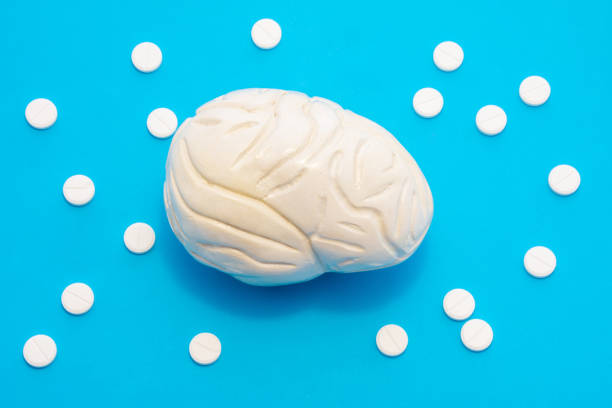Table of Contents
ToggleIntroduction
Welcome, dear readers, to a comprehensive exploration of the enigmatic realm of Zoloft-induced brain fog.
In this article, we embark on an intellectual journey to unravel the intricacies of this cognitive haze that often accompanies the use of Zoloft.
By delving into the depths of scientific understanding and drawing upon accumulated knowledge, we aim to shed light on this perplexing phenomenon and equip you with valuable insights.

A brief overview of Zoloft
Zoloft, also known by its generic name sertraline hydrochloride, is a member of the SSRI class of medications. This antidepressant is embraced by medical practitioners worldwide for its efficacy in managing several mental health conditions.
Primarily used to treat major depressive disorder (MDD), Zoloft has also proven effective in alleviating symptoms associated with other mood disorders such as generalized anxiety disorder (GAD), panic disorder, obsessive-compulsive disorder (OCD), post-traumatic stress disorder (PTSD), and premenstrual dysphoric disorder (PMDD).
This medication operates by selectively inhibiting the reuptake of serotonin in the brain.
Serotonin is a neurotransmitter responsible for regulating mood and plays a crucial role in maintaining emotional stability.
By blocking its reuptake into nerve cells, Zoloft enhances serotonin levels within specific brain regions implicated in mood regulation.
Brain Fog and its impact on cognitive Function
Brain fog refers to a state characterized by cognitive difficulties such as impaired concentration, memory problems, and slowed thinking processes.
It can manifest as a temporary side effect or persist as an ongoing challenge.
For those experiencing brain fog, the ability to think clearly, retain information, and engage in complex cognitive tasks may become compromised.
This cognitive haze can be disconcerting, interfering with academic or professional performance and impeding daily functioning.
Understanding Zoloft
Selective serotonin reuptake inhibitors, commonly known as SSRIs, are a class of medications used primarily for the treatment of depression, anxiety disorders, and other mental health conditions.
SSRIs primarily target the reuptake process of serotonin within the brain.
Serotonin is a neurotransmitter that plays a crucial role in regulating mood, emotions, and overall well-being. When released by neurons in the brain, serotonin binds to specific receptors and transmits signals between cells.
SSRIs like Zoloft inhibit this reuptake process by binding to transporters responsible for serotonin reabsorption.
By blocking these transporters, SSRIs increase the availability of serotonin in synaptic spaces between neurons and prolong its activity within these regions.
This increased concentration allows for enhanced neurotransmission across synapses and can lead to positive therapeutic effects on mood regulation.

How Zoloft Affects Serotonin Levels
By limiting reabsorption or clearance of serotonin from synaptic spaces between neurons in certain areas such as the prefrontal cortex and hippocampus – key regions associated with mood regulation – Zoloft increases extracellular levels of this neurotransmitter.
By elevating serotonin availability in these critical brain regions, Zoloft helps to compensate for any deficiencies or imbalances in the serotonin system that may contribute to mental health disorders.
The effects of Zoloft on serotonin levels are not immediate; they occur gradually over time as the medication builds up in the body.
This is why it often takes several weeks before patients begin to experience therapeutic effects.
Zoloft’s role as an SSRI involves inhibiting the reuptake of serotonin within certain brain regions. By doing so, it increases available levels of this important neurotransmitter and modulates its activity across synapses.
This modulation plays a crucial role in regulating mood, cognition, and overall well-being.
Unveiling Brain Fog: What is it?
It is characterized by a hazy mental state accompanied by various cognitive impairments. Individuals often find themselves grappling with difficulty concentrating, memory problems, and slowed thinking processes.
For those experiencing brain fog while taking Zoloft, concentration becomes an arduous task. Simple activities that once required minimal effort suddenly demand intense focus and attention.
Tasks such as reading a book or engaging in a conversation may feel like undertaking an uphill battle against the murkiness within the mind. Memory problems become apparent as individuals struggle to retain new information or recall previously learned information with ease.
Recalling names, dates, or specific details may become increasingly challenging.
Thoughts seem to be muffled under layers of foggy haze, leading to delayed responses and impaired decision-making abilities. Engaging in complex problem-solving exercises may require extra time and effort due to the diminished mental clarity caused by brain fog.
Difference between Transient Brain Fog and Persistent Cognitive Impairment
Transient brain fog typically manifests during the initial weeks of medication usage but tends to subside as the body adjusts to the drug’s effects. This temporary cloudiness often dissipates gradually over time without leaving any lasting cognitive deficits.
Persistent cognitive impairment refers to prolonged or permanent changes in cognition that persist even after an individual has been on Zoloft for an extended period.
This condition, although rare, can have a significant impact on daily functioning and quality of life. Differentiating between the two is crucial to ensure appropriate management and intervention strategies are implemented.
Serotonin’s role in modulating neurotransmitter activity
The prefrontal cortex is responsible for executive functions such as attention, decision-making, problem-solving, and working memory.
The hippocampus is involved in memory formation and consolidation. When serotonin levels are altered due to Zoloft intake, these areas may be affected.
Serotonin exerts its influence by binding to specific receptors throughout the brain. In the prefrontal cortex, serotonin acts on receptors known as 5-HT2A receptors.
This interaction helps regulate glutamate transmission by modulating excitatory signals. Similarly, within the hippocampus, serotonin interacts with 5-HT1A receptors that regulate neural pathways involved in memory formation.
Impact of altered neurotransmitter balance
Attention may be impaired as altered serotonin levels disrupt the delicate balance of neurotransmitter interactions within the prefrontal cortex.
This disruption can manifest as difficulty focusing, sustaining attention, and multitasking—hallmarks of brain fog.
Working memory, which facilitates temporary storage and manipulation of information necessary for complex cognitive tasks, is also vulnerable to the impact of altered neurotransmitter balance.
Serotonin’s modulation in the prefrontal cortex and its effect on glutamate transmission may lead to working memory deficits characterized by reduced capacity to hold and manipulate information in one’s mind.
Disrupted serotonin transmission within the prefrontal cortex may result in impaired executive functions, making it harder to prioritize tasks or inhibit impulsive behaviors.
Factors Influencing Brain Fog Severity
When it comes to Zoloft-induced brain fog, the dosage of the medication plays a significant role in determining its likelihood and intensity. As with many pharmacological interventions, adjusting the dosage can have varying effects on individuals.
In some cases, higher doses of Zoloft have been found to increase the prevalence and severity of brain fog symptoms.
This association can be attributed to the amplified impact on serotonin levels in the brain, potentially disrupting neurotransmitter balance and leading to cognitive impairment.
Not everyone will experience heightened brain fog symptoms at higher doses. Individual responses vary due to numerous factors, including genetic predispositions and overall health status.
Individual Differences: Genetic Factors at Play
Research suggests that certain genetic variations can influence how an individual metabolizes and responds to medications like Zoloft. One such example is polymorphisms affecting cytochrome P450 enzymes involved in drug metabolism.
These variations can lead to altered drug levels in the body or differences in how efficiently they are metabolized, potentially impacting both therapeutic effects and side effects.
By considering these genetic factors alongside clinical presentation and patient history, healthcare professionals can make more informed decisions when prescribing and adjusting Zoloft dosages.

Environmental Factors: The Role of External Influences
Stress, for example, can heighten cognitive impairment experienced during brain fog episodes. When individuals are under excessive pressure, the demands on their mental resources increase, potentially intensifying the impact of medication-induced brain fog.
Sleep quality plays a critical role in cognitive functioning. Inadequate sleep can worsen brain fog symptoms as it impairs attention, memory consolidation, and overall cognitive performance.
Diet is another crucial factor to consider. Certain dietary choices can indirectly affect neurotransmitter balance and cognitive function; for example, consuming high amounts of refined sugars or processed foods may lead to energy fluctuations that worsen brain fog symptoms.
Conversely, adopting a balanced diet rich in omega-3 fatty acids and antioxidants promote optimal brain health.
By acknowledging and addressing these environmental factors, individuals taking Zoloft can effectively navigate through the mist of medication-induced brain fog to enhance their overall well-being.
Remember to consult with healthcare professionals before making any changes to medication dosages or incorporating supplements into your treatment plan.
Conclusion
By delving into the intricate interplay between Zoloft, serotonin, and cognitive function, we have gained valuable insights into how this widely prescribed medication can impact our mental clarity.
The intricacies of brain fog provide a gateway to appreciate the delicate balance required for optimal cognitive performance.
Armed with a deeper understanding of the mechanisms behind Zoloft-induced brain fog, individuals can now make informed decisions about their mental health journey.
While nootropics and brain supplements have become increasingly popular in recent years as potential aids for cognitive enhancement, caution should be exercised when considering their use alongside Zoloft.










